
The Enchanting North Sea Coast of Germany
The North Sea Coast of Germany is a mesmerizing destination, renowned for its stunning landscapes, charming seaside towns, and unique cultural heritage. Stretching along the northwestern edge of the country, this coastal region offers visitors a blend of natural beauty and historical intrigue. Here, the vast expanse of the North Sea meets tranquil beaches, picturesque islands, and lush green marshlands, creating a perfect setting for relaxation and exploration. One of the highlights of the North Sea Coast is the Wadden Sea, a UNESCO World Heritage site. This unique tidal flat ecosystem is home to a diverse array of wildlife, including migratory birds, seals, and various marine species. Visitors can embark on guided tours to explore the tidal flats, learn about the region's delicate ecosystems, and even participate in traditional activities like mudflat hiking. The coastal towns and islands, such as Sylt, Föhr, and Helgoland, offer a glimpse into the local culture and history. These charming locales are dotted with thatched-roof houses, historic lighthouses, and quaint harbors. Visitors can enjoy fresh seafood at local restaurants, stroll along scenic promenades, and visit museums that highlight the region's maritime heritage. The North Sea Coast is also a haven for outdoor enthusiasts. The region's extensive network of cycling and hiking trails provides ample opportunities to explore the scenic countryside. Water sports such as sailing, windsurfing, and kiteboarding are popular activities, taking advantage of the steady coastal winds and open waters. Additionally, wellness centers and spas along the coast offer rejuvenating treatments, often incorporating the natural benefits of the sea.
Local tips in North Sea Coast
- Check the tide schedules before visiting the Wadden Sea for the best experience.
- Rent a bike to explore the scenic trails of the coastal region.
- Visit local markets to sample fresh seafood and regional delicacies.
- Pack layers of clothing as the coastal weather can change rapidly.
- Book accommodations in advance, especially during the summer months.
The Enchanting North Sea Coast of Germany
The North Sea Coast of Germany is a mesmerizing destination, renowned for its stunning landscapes, charming seaside towns, and unique cultural heritage. Stretching along the northwestern edge of the country, this coastal region offers visitors a blend of natural beauty and historical intrigue. Here, the vast expanse of the North Sea meets tranquil beaches, picturesque islands, and lush green marshlands, creating a perfect setting for relaxation and exploration. One of the highlights of the North Sea Coast is the Wadden Sea, a UNESCO World Heritage site. This unique tidal flat ecosystem is home to a diverse array of wildlife, including migratory birds, seals, and various marine species. Visitors can embark on guided tours to explore the tidal flats, learn about the region's delicate ecosystems, and even participate in traditional activities like mudflat hiking. The coastal towns and islands, such as Sylt, Föhr, and Helgoland, offer a glimpse into the local culture and history. These charming locales are dotted with thatched-roof houses, historic lighthouses, and quaint harbors. Visitors can enjoy fresh seafood at local restaurants, stroll along scenic promenades, and visit museums that highlight the region's maritime heritage. The North Sea Coast is also a haven for outdoor enthusiasts. The region's extensive network of cycling and hiking trails provides ample opportunities to explore the scenic countryside. Water sports such as sailing, windsurfing, and kiteboarding are popular activities, taking advantage of the steady coastal winds and open waters. Additionally, wellness centers and spas along the coast offer rejuvenating treatments, often incorporating the natural benefits of the sea.
When is the best time to go to North Sea Coast?
Iconic landmarks you can’t miss
Treppenviertel Blankenese
Explore Treppenviertel Blankenese, a picturesque district in Hamburg with stunning views, historic charm, and serene hiking paths along the Elbe River.
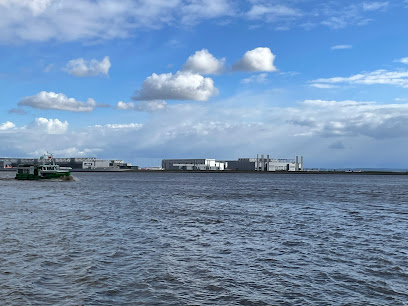
Medieval Castle Beaufort
Discover the enchanting Medieval Castle Beaufort, a historical gem in Luxembourg, offering breathtaking views, rich history, and cultural experiences.
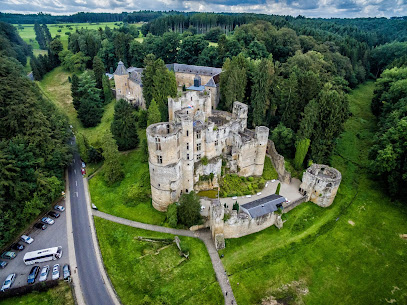
Kaiserpfalz Kaiserswerth
Discover the captivating history and beauty of Kaiserpfalz Kaiserswerth, a stunning landmark in Düsseldorf, perfect for history enthusiasts and nature lovers alike.
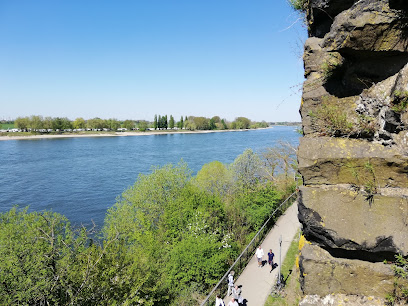
Dreiländereck
Experience the convergence of cultures at Dreiländereck, where Switzerland, Germany, and France meet along the stunning Rhine River.
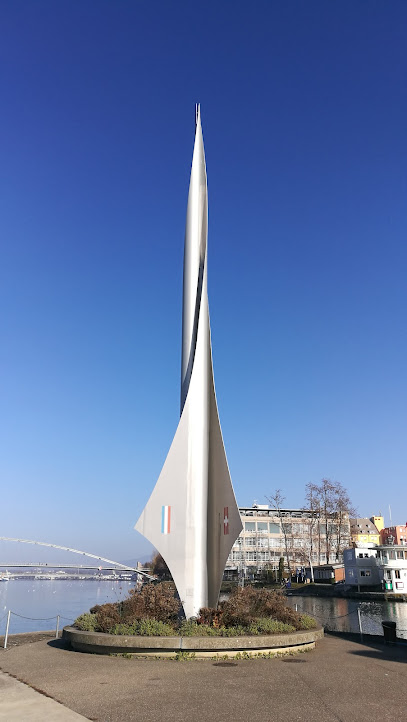
Northernmost point of Germany
Explore the Northernmost Point of Germany, a breathtaking coastal landmark where the North Sea meets stunning landscapes, rich history, and adventure.
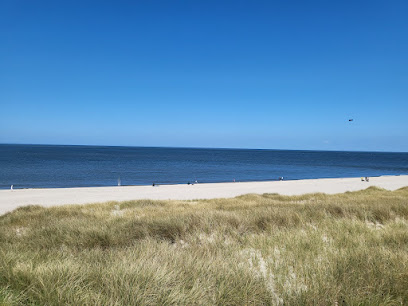
Unmissable attractions to see
St. Pauli Piers
Discover the charm of St. Pauli Piers, Hamburg's vibrant waterfront hub, where history meets modern leisure and stunning views abound.
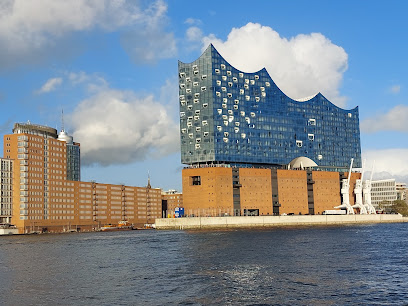
Hamburg Dungeon
Dive into the chilling history of Hamburg at the Hamburg Dungeon, where thrilling performances and immersive storytelling await.
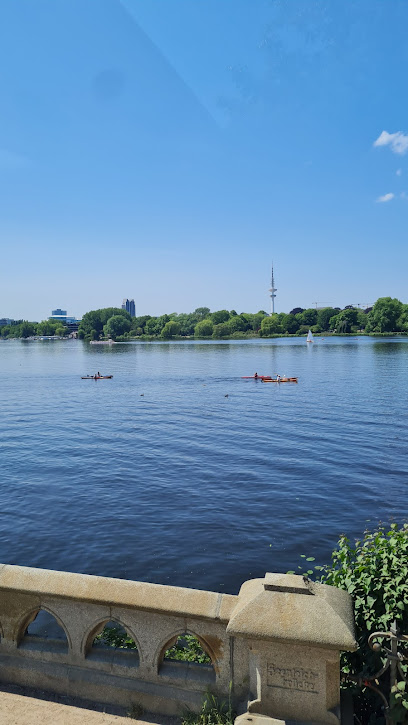
Kugelbake
Discover Kugelbake, the historic lighthouse of Cuxhaven, where maritime history meets breathtaking coastal views for an unforgettable experience.
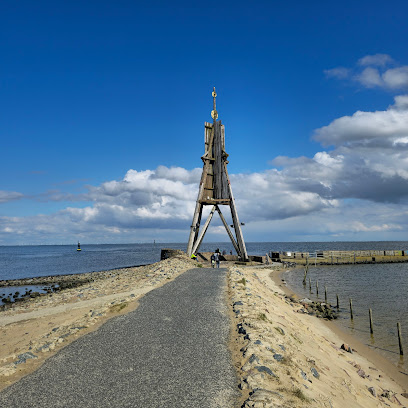
New Lighthouse Borkum
Explore the New Lighthouse of Borkum, a stunning historical landmark offering breathtaking views and rich maritime heritage in the heart of the North Sea.
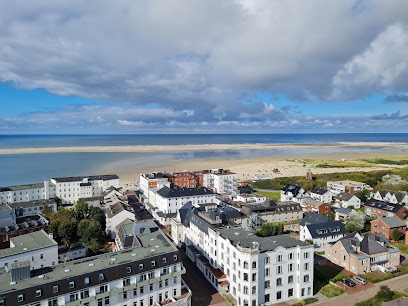
Nordsee Aquarium Borkum
Explore the fascinating marine life at Nordsee Aquarium Borkum, a top tourist attraction on the beautiful Borkum Island, showcasing North Sea ecosystems.
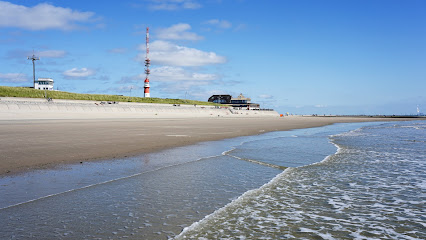
The Devil's Bridge
Discover the stunning Devil's Bridge in Gablenz, a beautiful blend of natural scenery and architectural wonder that enchants every visitor.
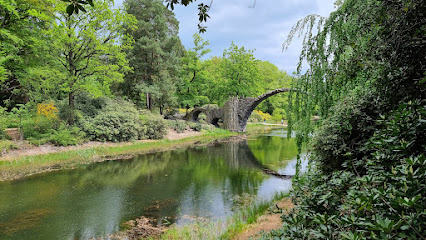
National Park House North Sea coast Wurster
Discover the stunning landscapes and rich biodiversity at the National Park House North Sea Coast Wurster, a true gem for nature lovers and adventurers.
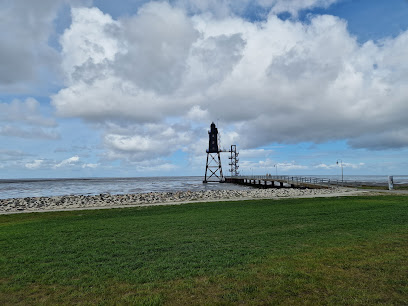
Northernmost point of Germany
Explore the stunning landscapes and rich history at the northernmost point of Germany, where nature and adventure await every traveler.
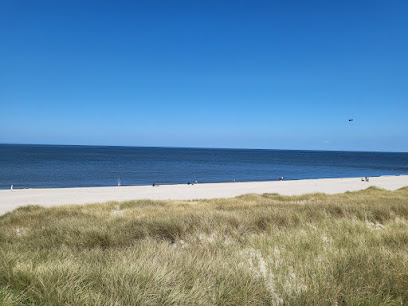
Leuchtturm List-Ost
Discover the breathtaking Leuchtturm List-Ost on Sylt, a captivating lighthouse surrounded by hiking trails and stunning North Sea views.
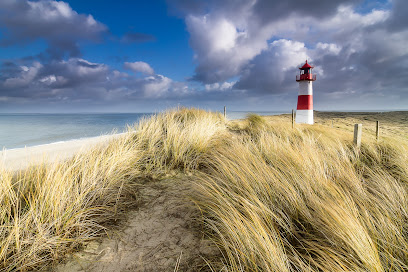
Tümlau Bay
Experience the tranquil beauty of Tümlau Bay, a North Sea gem, perfect for relaxation, adventure, and unforgettable coastal views.
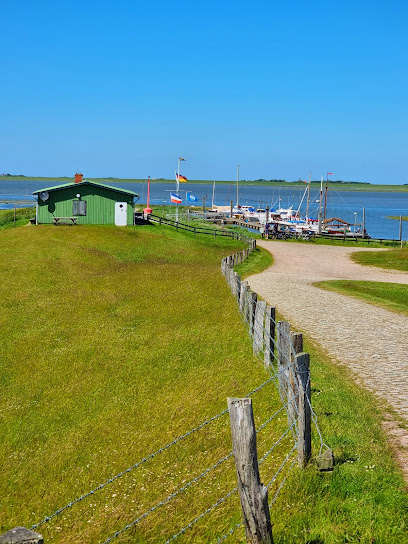
Essential places to dine
Berliner Republik
Discover Berliner Republik: A Culinary Haven in Berlin's Mitte District Offering Authentic German Cuisine and Lively Atmosphere.
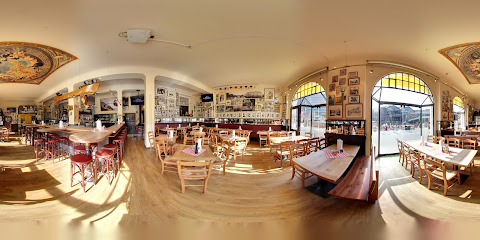
Kasematten Düsseldorf
Indulge in Mediterranean flavors at Kasematten Düsseldorf – where riverside views meet delightful culinary experiences.
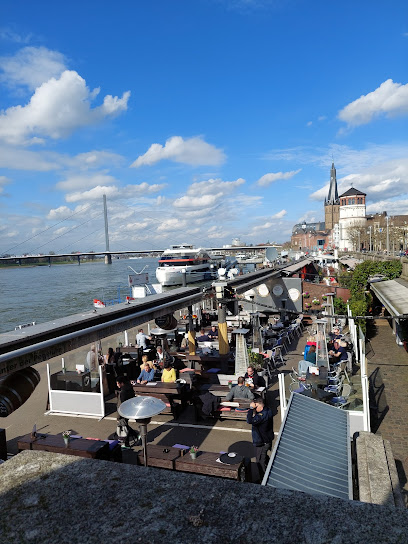
Nante-Eck
Experience authentic German cuisine at Nante-Eck in Berlin’s Mitte district—where tradition meets taste in a cozy atmosphere.
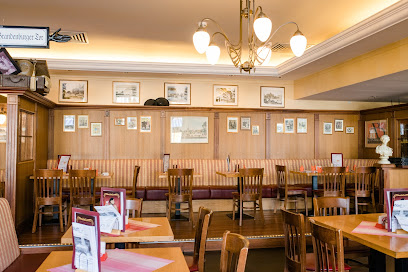
Hus op'n Diek - Fischrestaurant
Experience fresh seafood delights at Hus op'n Diek in Cuxhaven – where maritime charm meets culinary excellence.
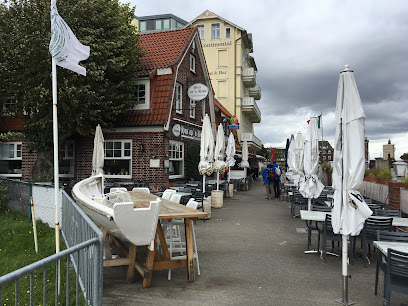
Schönes Leben Speicherstadt
Savor authentic German flavors at Schönes Leben Speicherstadt in Hamburg's historic warehouse district.
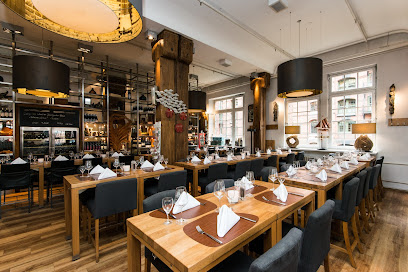
GlückundSeligkeit
Experience culinary artistry at GlückundSeligkeit in Bielefeld - where every meal is a masterpiece crafted with passion.
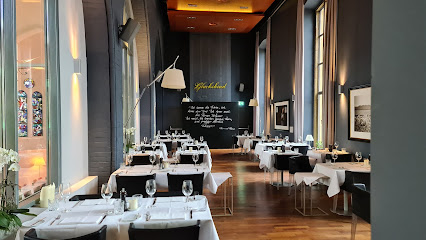
Hafenhaus Gastrokonzepte GmbH & Co. KG
Experience the best of European cuisine at Hafenhaus Gastrokonzepte in Emden - where great food meets stunning waterfront views.
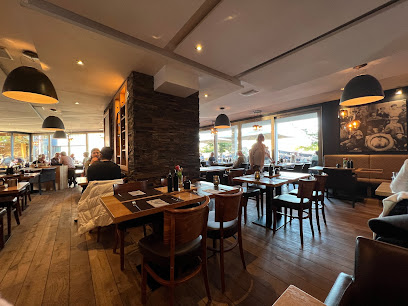
Kaiserbad
Discover Kaiserbad in Leipzig: A delightful restaurant offering local flavors in a vibrant setting.
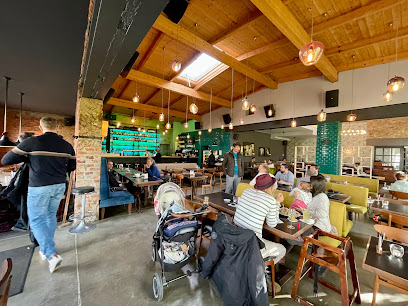
Restaurant Duhner Strandräuber
Experience authentic German cuisine at Restaurant Duhner Strandräuber, where fresh seafood meets hearty hamburgers in a stunning coastal setting.
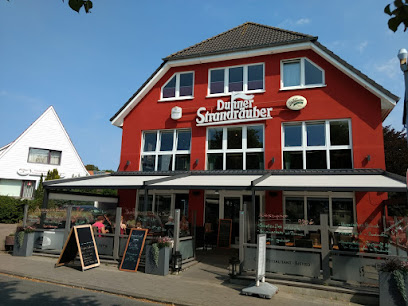
Aloha Beachclub Herford
Experience tropical bliss at Aloha Beachclub Herford—where vibrant dining meets endless recreation in a paradise-like setting.
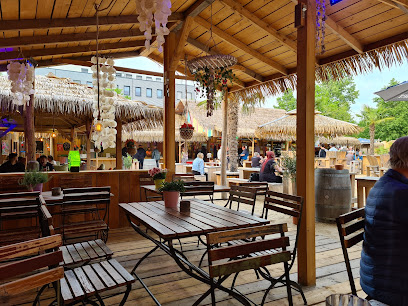
Zum Fischmeister
Discover Büsum's premier seafood destination at Zum Fischmeister - where fresh flavors meet coastal charm.
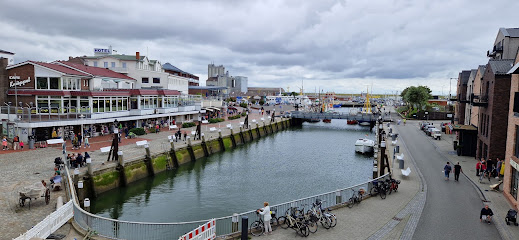
Nordsee
Experience fresh seafood delights at Nordsee in Munich's Viktualienmarkt - where culinary tradition meets modern flavor.
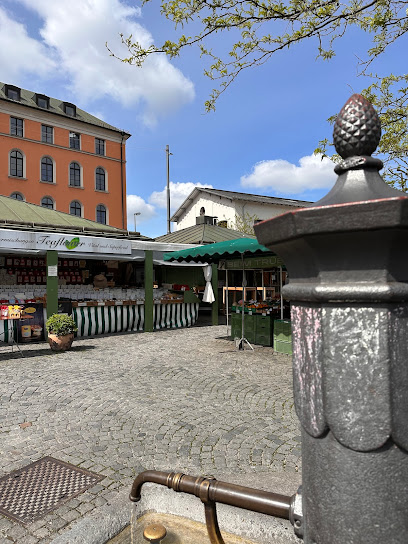
Bocca di Bacco
Experience authentic Italian cuisine at Bocca di Bacco in Berlin – where tradition meets elegance in every dish.
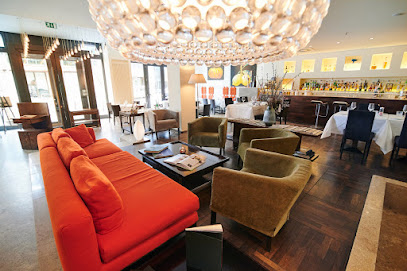
Royal Punjab - Indisches Restaurant - Hamburg
Experience authentic Indian cuisine at Royal Punjab in Hamburg - where vibrant flavors meet warm hospitality.
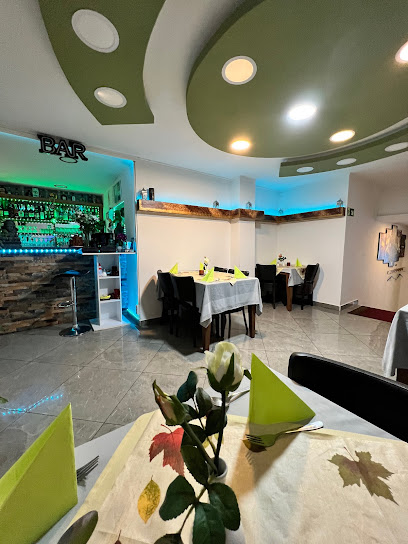
Restaurant „Kleine Büdnerei“
Experience authentic regional cuisine at Restaurant „Kleine Büdnerei“, nestled in beautiful Ostseebad Boltenhagen.
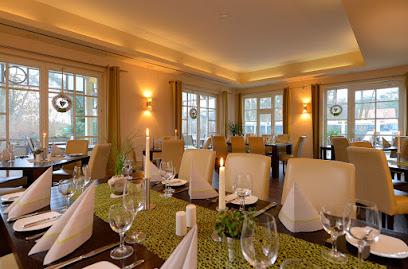
Markets, malls and hidden boutiques
Centro Oberhausen
Explore Centro Oberhausen, a premier shopping mall in Germany offering diverse shops, delicious dining, and family-friendly entertainment options.
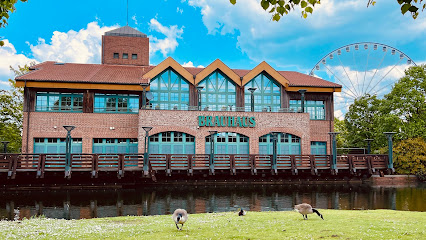
KaDeWe - Kaufhaus des Westens
Explore KaDeWe, Berlin's iconic department store, known for luxury shopping, gourmet delights, and stunning city views, a true highlight for any visitor.
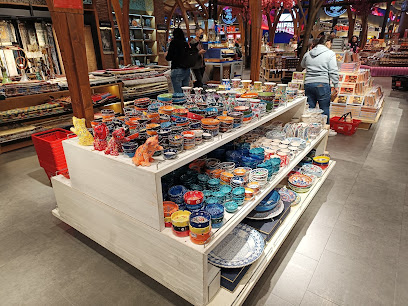
Mall of Berlin
Explore the Mall of Berlin, a shopping paradise with diverse brands, delightful dining, and a vibrant atmosphere in the heart of the city.
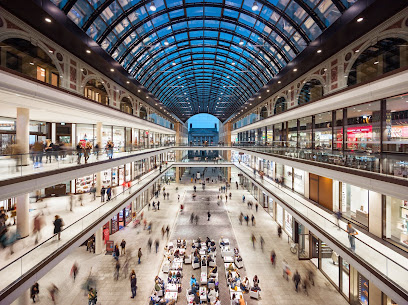
Altmarkt-Galerie Dresden
Explore the vibrant Altmarkt-Galerie Dresden: a shopping paradise with diverse stores, dining options, and events at the heart of the city.
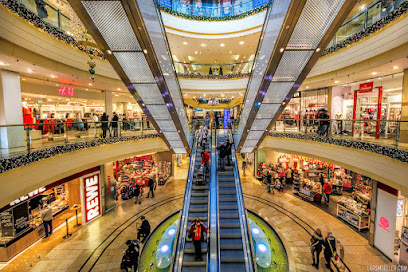
ALEXA Berlin
Explore ALEXA Berlin, a dynamic shopping mall featuring a mix of fashion, dining, and entertainment in the heart of the city.
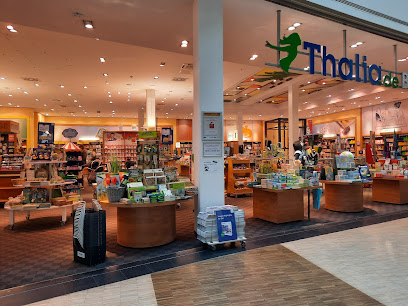
Designer Outlet Neumünster
Experience unrivaled shopping at Designer Outlet Neumünster with top brands, amazing deals, and a variety of dining options for an unforgettable day out.
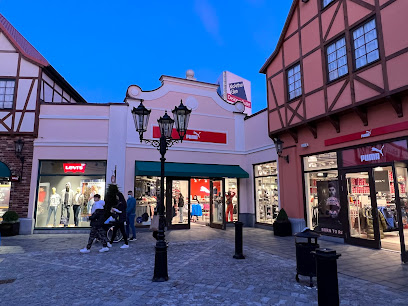
Zweibrücken Fashion Outlet
Discover unbeatable deals on designer brands at Zweibrücken Fashion Outlet, the ultimate shopping destination in Germany.
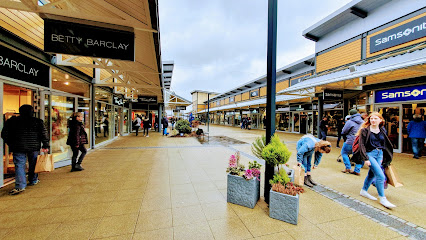
Bikini Berlin
Discover Bikini Berlin, a unique shopping mall blending modern design with a vibrant atmosphere for an unforgettable retail experience.
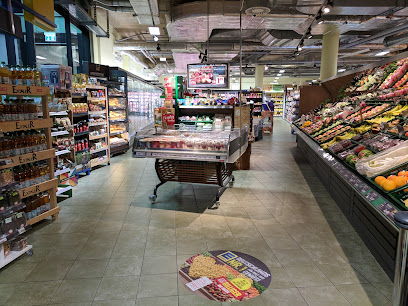
Scandinavian Park
Experience the essence of Scandinavian shopping at Scandinavian Park, a hypermarket offering a wide array of quality products in Handewitt.
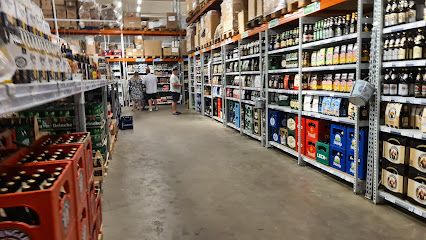
Ingolstadt Village
Discover Ingolstadt Village: A shopping paradise with luxury brands, charming ambiance, and unbeatable outlet prices in the heart of Bavaria.
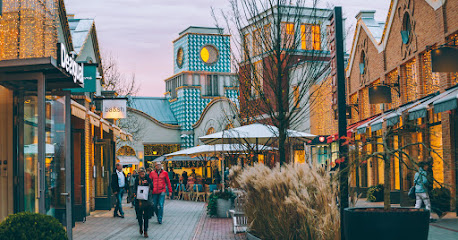
McArthurGlen Designer Outlet Ochtrup
Shop in style at McArthurGlen Designer Outlet Ochtrup, where luxury meets affordability in a vibrant shopping atmosphere.
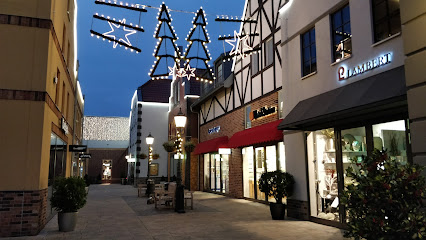
Hackesche Höfe
Explore Hackesche Höfe, a vibrant shopping and cultural hub in Berlin, featuring unique shops, diverse dining options, and artistic experiences.
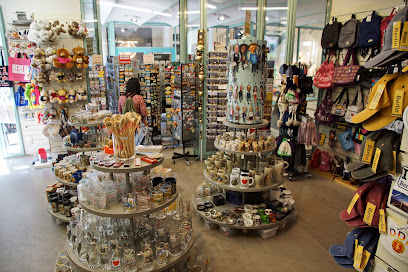
Designer Outlet Soltau
Explore Designer Outlet Soltau for unbeatable discounts on your favorite designer brands in a beautiful shopping environment.
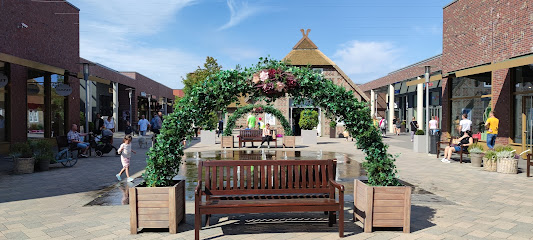
Outlet Montabaur
Discover unbeatable deals and a delightful shopping atmosphere at Outlet Montabaur, the premier outlet mall in Montabaur, Germany.
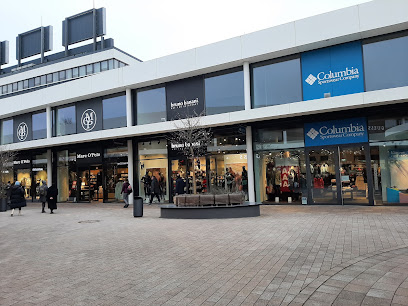
GALERIA Frankfurt an der Hauptwache
Explore GALERIA Frankfurt an der Hauptwache, a vibrant shopping hub offering the latest fashion, beauty, and lifestyle products in the heart of Frankfurt.
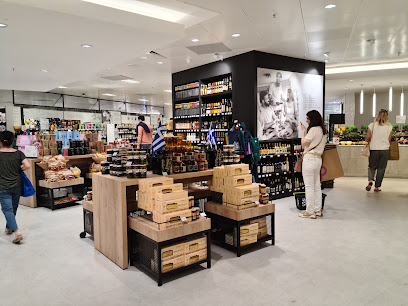
Essential bars & hidden hideouts
Sky Beach Stuttgart
Discover Sky Beach Stuttgart, a rooftop bar blending stunning city views with refreshing cocktails and a vibrant atmosphere for an unforgettable night.
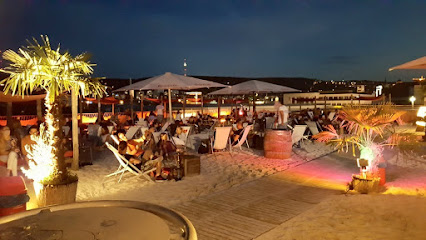
meisterschueler
Discover Berlin's Meisterschueler: a cocktail bar and art gallery where creativity meets nightlife in the heart of the city.
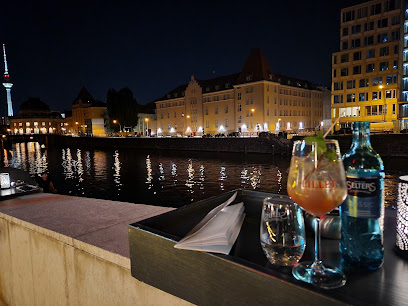
The Boilerman Bar Hafenamt
Experience the vibrant nightlife at The Boilerman Bar Hafenamt, Hamburg's chic cocktail haven with an inviting maritime ambiance.
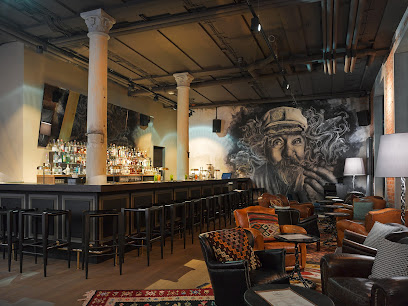
Windhorst
Experience Berlin's vibrant nightlife at Windhorst, an upscale cocktail bar serving exquisite drinks in a stylish atmosphere in the heart of Mitte.
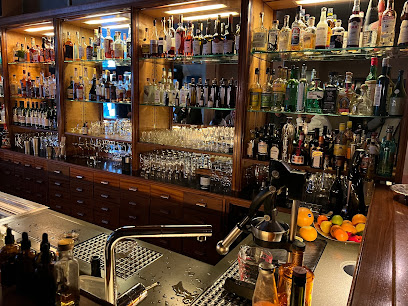
Reingold
Experience the vibrant nightlife of Berlin at Reingold, a trendy cocktail bar in Mitte, known for its expertly crafted drinks and inviting ambiance.
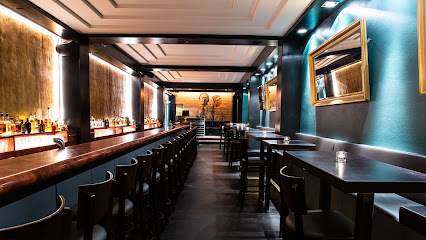
The Unique Bar Berlin
Discover The Unique Bar Berlin, a vibrant nightlife destination within the Sheraton Berlin Grand Hotel, perfect for cocktails and socializing.
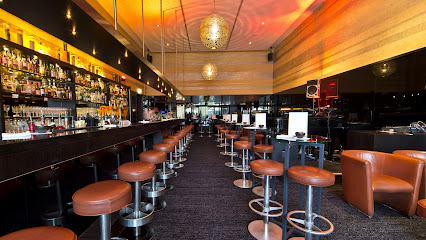
Local Phrases about North Sea Coast
-
- HelloMoin
[moin] - GoodbyeTschüss
[tʃʏs] - YesJa
[ja] - NoNein
[naɪn] - Please/You're welcomeBitte
[bɪtə] - Thank youDanke
[ˈdaŋkə] - Excuse me/SorryEntschuldigung
[ɛntˈʃʊldɪɡʊŋ] - How are you?Wie geht's?
[viː ɡɛts] - Fine. And you?Gut. Und dir?
[ɡuːt ʊnt diːr] - Do you speak English?Sprichst du Englisch?
[ʃprɪçst duː ˈɛŋlɪʃ] - I don't understandIch verstehe nicht
[ɪç fɛɐ̯ˈʃteːə nɪçt]
- HelloMoin
-
- I'd like to see the menu, pleaseIch würde gerne die Speisekarte sehen, bitte
[ɪç vyːdə ˈɡɛʁnə diː ˈʃpaɪ̯zə kaʁtə ˈzeːən ˈbɪtə] - I don't eat meatIch esse kein Fleisch
[ɪç ˈɛsə kaɪ̯n flaɪ̯ʃ] - Cheers!Prost!
[pʁoːst] - I would like to pay, pleaseIch würde gerne bezahlen, bitte
[ɪç vyːdə ˈɡɛʁnə bəˈʦaːlən ˈbɪtə]
- I'd like to see the menu, pleaseIch würde gerne die Speisekarte sehen, bitte
-
- Help!Hilfe!
[ˈhɪlfə] - Go away!Geh weg!
[ɡeː vɛk] - Call the Police!Ruf die Polizei!
[ʁuːf diː pɔˈliːtsaɪ̯] - Call a doctor!Ruf einen Arzt!
[ʁuːf ˈaɪ̯nən ˈaʁts] - I'm lostIch habe mich verirrt
[ɪç ˈhaːbə mɪç fɛˈʁɪʁt] - I'm illIch bin krank
[ɪç bɪn kʁaŋk]
- Help!Hilfe!
-
- I'd like to buy...Ich möchte kaufen...
[ɪç ˈmøːçtə ˈkaʊ̯fən] - I'm just lookingIch schaue nur
[ɪç ˈʃaʊ̯ə nuːɐ̯] - How much is it?Wie viel kostet es?
[viː fiːl ˈkɔstət ɛs] - That's too expensiveDas ist zu teuer
[das ɪst tsuː ˈtɔʏ̯ɐ] - Can you lower the price?Kannst du den Preis senken?
[kanst duː deːn pʁaɪ̯s ˈzɛŋkən]
- I'd like to buy...Ich möchte kaufen...
-
- What time is it?Wie spät ist es?
[viː ʃpɛːt ɪst ɛs] - It's one o'clockEs ist ein Uhr
[ɛs ɪst aɪ̯n ʔuːɐ̯] - Half past (10)Halb (zehn)
[halb (tseːn)] - MorningMorgen
[ˈmɔʁɡn̩] - AfternoonNachmittag
[ˈnaχˌmɪˌtaːk] - EveningAbend
[ˈaːbənt] - YesterdayGestern
[ˈɡɛstɐn] - TodayHeute
[ˈhɔʏ̯tə] - TomorrowMorgen
[ˈmɔʁɡn̩] - 1Eins
[aɪ̯ns] - 2Zwei
[tsvaɪ̯] - 3Drei
[dʁaɪ̯] - 4Vier
[fiːɐ̯] - 5Fünf
[fʏnf] - 6Sechs
[zɛks] - 7Sieben
[ziːbən] - 8Acht
[axt] - 9Neun
[nɔʏ̯n] - 10Zehn
[tseːn]
- What time is it?Wie spät ist es?
-
- Where's a/the...?Wo ist ein/der...?
[vo ɪst aɪ̯n/deːɐ̯] - What's the address?Was ist die Adresse?
[vas ɪst diː ˈaˌdʁɛsə] - Can you show me (on the map)?Kannst du mir zeigen (auf der Karte)?
[kanst duː miːɐ̯ ˈʦaɪ̯ɡən (aʊ̯f deːɐ̯ ˈkaʁtə)] - When's the next (bus)?Wann kommt der nächste (Bus)?
[van kɔmt deːɐ̯ ˈnɛkstə (bʊs)] - A ticket (to ....)Eine Fahrkarte (nach ....)
[ˈaɪ̯nə ˈfaːɐ̯kaʁtə (nax ....)]
- Where's a/the...?Wo ist ein/der...?
History of North Sea Coast
-
The North Sea Coast of Germany has a rich history dating back to the early Frisian settlements. The Frisian people, known for their seafaring skills, settled in the region as early as the Roman times. Their influence is still evident today in the local dialects, traditions, and the Frisian laws that were once the foundation of local governance.
-
In the Middle Ages, the North Sea Coast played a crucial role in the Hanseatic League, a powerful economic and defensive alliance of merchant guilds and market towns in Northwestern and Central Europe. Cities like Bremen and Hamburg became major trading hubs, facilitating the exchange of goods between Scandinavia, the Baltic region, and the rest of Europe.
-
In 793 AD, the Battle of the Weser River took place near the North Sea Coast, marking a significant event in the Carolingian Empire's efforts to subdue the Saxons. This battle was part of Charlemagne's wider campaign to Christianize and incorporate the Saxon territories into his empire.
-
The Great North Sea Flood, also known as the Grote Mandrenke, struck the North Sea Coast in 1362, causing widespread devastation. Thousands of lives were lost, and entire villages were swallowed by the sea. This event significantly altered the coastline and led to the construction of extensive dike systems to protect against future flooding.
-
The North Sea Coast was not spared from the ravages of the Thirty Years' War (1618-1648). The region saw numerous battles, pillaging, and destruction as various factions fought for control. The war had lasting impacts on the population and the economy, but also led to significant fortification efforts in coastal cities.
-
During the Napoleonic Wars, the North Sea Coast came under French control. Napoleon's Continental System aimed to restrict British trade, significantly affecting the local economy. Many coastal fortifications from this period can still be seen today, such as those in Cuxhaven and Wilhelmshaven.
-
In the 19th century, the North Sea Coast began to develop as a popular destination for seaside tourism. The establishment of resorts and spas in towns like Sylt, Norderney, and Borkum attracted visitors seeking the health benefits of sea air and bathing. This period marked the beginning of the region's transformation into a major tourist destination.
-
The strategic importance of the North Sea Coast was highlighted during World War II. The region hosted several crucial naval bases, including the massive submarine pens in Wilhelmshaven and Hamburg. The coast also witnessed significant Allied bombing campaigns aimed at crippling the German navy and industrial capabilities.
-
After World War II, the North Sea Coast underwent extensive reconstruction. The rebuilding efforts transformed the region into a modern economic hub, with a focus on maritime industries, tourism, and renewable energy. Today, the area is known for its wind farms and sustainable development initiatives, reflecting a blend of historical heritage and contemporary innovation.
North Sea Coast Essentials
-
The North Sea Coast in Germany is accessible via several major airports, including Hamburg Airport (HAM), Bremen Airport (BRE), and Hannover Airport (HAJ). From these airports, you can take a train or rent a car to reach various coastal towns. The Deutsche Bahn (DB) offers efficient train services connecting these cities to coastal destinations such as Cuxhaven, Bremerhaven, and Wilhelmshaven. If you prefer driving, the Autobahn network provides well-maintained routes to the coast.
-
The North Sea Coast has a reliable public transportation system, including buses and trains, making it easy to travel between towns. Bicycles are also a popular mode of transport, with many dedicated bike paths along the coast. For more flexibility, consider renting a car. Ferries operate between the mainland and the East Frisian Islands, such as Borkum and Norderney. Local taxi services are available but can be more expensive compared to public transport.
-
Germany uses the Euro (EUR) as its official currency. Credit and debit cards are widely accepted, especially Visa and MasterCard, but it's advisable to carry some cash for smaller establishments or rural areas. ATMs are plentiful in towns and cities, and you can use international cards to withdraw euros. Ensure you inform your bank of your travel plans to avoid any issues with card usage.
-
The North Sea Coast is generally safe for tourists. However, as with any travel destination, it's important to stay vigilant. Avoid leaving valuables unattended and be cautious in crowded areas. While there are no specific high-crime areas targeting tourists, it is wise to avoid poorly lit areas at night, especially in larger cities. Petty crimes like pickpocketing can occur, particularly in tourist hotspots.
-
In case of emergency, dial 112 for immediate assistance, which will connect you to police, fire, and medical services. Hospitals and clinics are available in major towns, and pharmacies (Apotheken) can provide over-the-counter medications. It's recommended to have travel insurance that covers medical emergencies and to carry a copy of your insurance policy. For non-emergency medical advice, you can visit local doctors.
-
Fashion: Do dress in layers and carry a windbreaker, as the coastal weather can be unpredictable. Avoid overly casual clothing in upscale restaurants. Religion: Do respect religious sites and customs. Avoid making loud noises or using flash photography in churches. Public Transport: Do validate your ticket before boarding trains and buses. Don't talk loudly on public transport or play loud music. Greetings: Do greet people with a firm handshake and maintain eye contact. Don't use informal greetings unless you know the person well. Eating & Drinking: Do try local seafood and traditional dishes like Labskaus. Don't leave a tip on the table; instead, hand it directly to the server and say 'danke' (thank you).
-
To experience the North Sea Coast like a local, visit the weekly markets where you can buy fresh produce and regional specialties. Try the local fish dishes, especially in small, family-run restaurants. Participate in local festivals and events to immerse yourself in the culture. Rent a bicycle and explore the scenic bike paths along the coast. Engage with locals; they are usually friendly and willing to share tips about hidden gems in the area.
Nearby Cities to North Sea Coast
-
Things To Do in Bremen
-
Things To Do in Ribe
-
Things To Do in Esbjerg
-
Things To Do in Sønderborg
-
Things To Do in Hamburg
-
Things To Do in Kolding
-
Things To Do in Lubeck
-
Things To Do in Zwolle
-
Things To Do in Vejle
-
Things To Do in Odense
-
Things To Do in Horsens
-
Things To Do in Herning
-
Things To Do in Nyborg
-
Things To Do in Hannover
-
Things To Do in Munster











